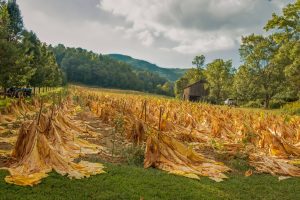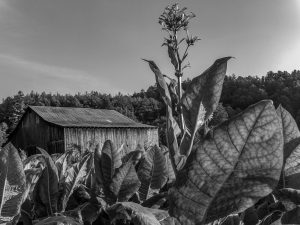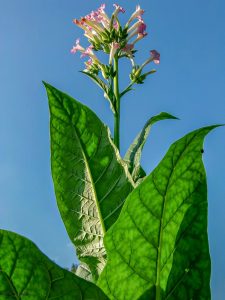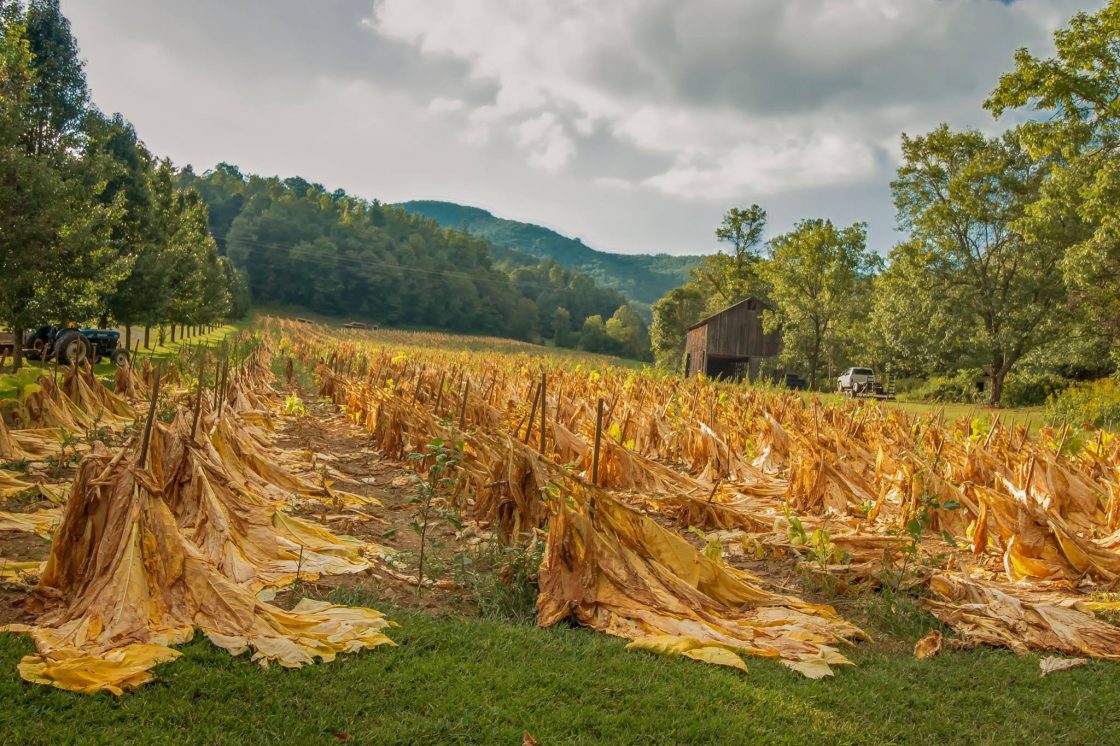Hi, Folks.
For those who have never visited Madison County, if you turn onto NC Highway 212 East and travel its entire length you will log about fourteen miles. You will have traveled right through the heart of a community known as Shelton Laurel.
The majority of my life has been spent right here, so far. My childhood was filled with the good fortune of witnessing the last generation of folks who lived the traditional, self-reliant Appalachian lifestyle. Most everything was grown or crafted within the community: Clothing, Molasses, Honey, Hay, Tobacco etc.
In addition to witnessing that lifestyle, I also got to participate in it as well. Long days were filled with pitching hay, cutting & hanging tobacco and a variety of other chores.
 Tobacco was the undisputed king. Tobacco crops fed families and sent kids through college but mainly allowed people to make it from one year to the next.
Tobacco was the undisputed king. Tobacco crops fed families and sent kids through college but mainly allowed people to make it from one year to the next.
However, as health concerns grew politicians began to throw tobacco farmers and their families to the wolves. Most notable was United States Senator Jesse Helms, whose political success was defined in part by the trust placed in him by the North Carolina agriculture community.
However, toward the end of his career he decided to support killing the support price on tobacco; it was the beginning of the end for tobacco on small family farms including those in Appalachia.
In 2005, the Fair and Equitable Tobacco Reform Act was passed. Better known as the “Tobacco Buyout” the government paid land owners with tillable acreage allotments to not grow tobacco with the payments being made over ten years. It was a pittance compared to what farmers made on a good crop.
Now word has come to me that Larry Patterson has retired from tobacco farming.
If you make that trip up NC Highway 212 this coming summer you will witness something that has not happened in Madison County since its formation in 1851. You will not be able to see one field on Shelton Laurel with tobacco in it. Not one.
 In its heyday, Madison County was the largest producing county of Burley Tobacco in the United States, frequently swapping the honor with Clay County, Kentucky. Now, the county is down to twelve or thirteen farmers throughout its area growing tobacco.
In its heyday, Madison County was the largest producing county of Burley Tobacco in the United States, frequently swapping the honor with Clay County, Kentucky. Now, the county is down to twelve or thirteen farmers throughout its area growing tobacco.
I never thought I would never live to see the day that this would happen.
Politicians have killed tobacco. They have shut down the schools in outlying areas throughout Appalachia. They have singlehandedly killed the lifeblood and livelihoods of rural Appalachia and I don’t care to say it. They do not flinch at raising taxes and spouting off about “their costs”, all the while neglecting those they were intended to serve.
People are now driving unimaginable distances to work, small children are catching school buses at six o’clock in the morning and the list goes on. People are moving away.
Where does it end?
There is no doubt that Appalachia is changing. For those who want to be more positive you can say that it is evolving or progressing.
But to where? That is the question.
Not everyone in Appalachia is going to sit around and weave baskets or make folk music for a living.
 I guess the bottom line for me is that the people of Appalachia have used tobacco for generations for their livelihoods. Those who deemed its demise necessary have nothing to replace it.
I guess the bottom line for me is that the people of Appalachia have used tobacco for generations for their livelihoods. Those who deemed its demise necessary have nothing to replace it.
Now people have been put in the position of being desperate, a stereotype placed on us by those on the outside looking in.
That’s pretty ironic but it’s a hard row to hoe.
Y’all have a great week.

